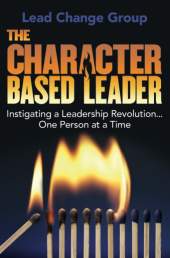In The Strength of Not Knowing, author Steve Keating (@LeadToday) says strong leaders “have the courage to admit what they don’t know.” Every day, we’re confronted with the opportunity to act like we know something we don’t. In fact, I probably did that today. But I did it a lot more often before I learned the power of an honest question.
An honest question creates knowledge. As Steve pointed out, when we know we don’t know, we’re able to learn. In fact, the first key to learning is the willingness to accept the idea that we don’t know. When I graduated from college, I thought I knew everything important. I wasn’t so arrogant as to think I knew everything. But I was pretty sure if I didn’t know something, it was probably not very important. Only out of frustration, after years of having my life work out worse than I had planned, did I start to learn things that really mattered.
 An honest question creates ideas. Shared knowledge creates the opportunity for ideas. Many great ideas were the continuation of a good idea. Before the iPhone and the iPad came the iPod. And before all of them came the Palm Pilot. Together we can use our newly shared information to create an idea or to solve a problem. Ideas can change the world. And ideas are cumulative. They build on the ideas and the knowledge that preceded them.
An honest question creates ideas. Shared knowledge creates the opportunity for ideas. Many great ideas were the continuation of a good idea. Before the iPhone and the iPad came the iPod. And before all of them came the Palm Pilot. Together we can use our newly shared information to create an idea or to solve a problem. Ideas can change the world. And ideas are cumulative. They build on the ideas and the knowledge that preceded them.
An honest question communicates respect. When we admit our need for knowledge from someone else we admit we don’t know and we also admit we think the other person may know. As they tell us what they know, we create a bond; we have a common bit of information. Many people create their best ideas by “bouncing” them off of other people. Giving our team and our friends the opportunity to answer our questions without judgment creates respect and demonstrates our need for them.
An honest question creates freedom. I’ve learned too, since I moved into leadership positions, that many people think their job is to guess my answer to questions. If I give my answer, then some team members believe my idea is the “right” one. Often we lose the best ideas because people think the boss is always right or they’re supposed to guess the boss’s idea. By asking honest questions, the leader models learning and the team learns the benefits of not knowing and the opportunities and ideas that come from a willingness to learn.
The key to learning is not knowing. If I could, I’d phrase every sentence as an honest question, it would create more freedom and learning and growth for myself and my team. Are you sure you know? Is there an area you need to ask more questions?
Speaking of not knowing, I’m conducting a survey about individual perceptions of the Christian faith in the workplace. You can take the survey regardless of your faith. Click here to find out more. Thanks!
Photo (c) iQoncept fotolia.com










